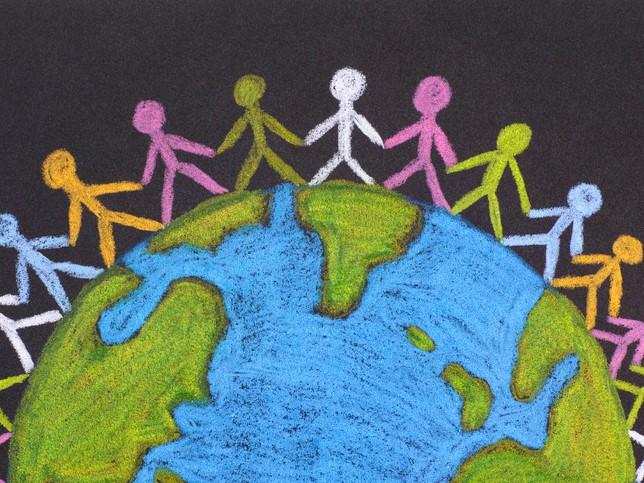
Transformative change is needed to deliver Earth-centred education

Since the term was first popularised in the 1987 Brundtland Report Our Common Future, “sustainable development” has become the dominant framework for reconciling the value systems and world view of modern societies with the constraints of living on a finite planet. In 2015, the United Nations adopted the 17 Sustainable Development Goals (SDGs) as a concrete action plan for making this global vision a reality.
It is hard to quarrel with the ambitions expressed in the SDGs, which cover such basic human needs as food and water, health, education, housing and work, along with the protection of land, oceans and the atmosphere. Yet there is an assumption running all the way through Agenda 2030 (the UN’s action plan) that progress will necessarily be incremental: year-on-year improvements in various measures of human and planetary well-being.
Through my work in a Canadian faculty of education, I am familiar with this kind of thinking, which is pervasive in mainstream approaches to educational change. The self-preserving tendencies of the legacy institutions of the industrial age are exemplified in public schooling. So many of the latter’s basic parameters are locked in, from the design of school buildings and grounds to age grading, student-teacher ratios and the core subject divisions of the curriculum, that the system acquires an aura of inevitability. Whatever the improvements we want to make, the overall picture will remain pretty similar to what we have.
- Offering students a ‘Big Green Gap Year’ has multiple rewards
- To save higher education, we must look beyond traditional university models
- From personal to professional: incorporating sustainability into your university work
Now, this is not a problem if one believes that our existing institutions are basically doing the job we need. By pointing to successful cases of incremental change, we will always be able to convince ourselves that gradual improvement is both a realistic possibility and, extended over time, adequate to address the most pervasive and deep-seated problems. Something like this seems to be the default assumption in both the sustainable development paradigm and in mainstream thinking about education, including the thinking of many of my faculty colleagues. I suspect that underlying both is a metaphysics of continuous progress, embedded in both the “unfolding” metaphor of development and the “leading forth” metaphor of education.
But what if the assumption of continuity is false?
The current UN secretary general, António Guterres, has emphasised more and more forcefully over his term of office that transformative change is needed in the global community’s response to the climate and ecological crises. “We are on a highway to climate hell with our foot still on the accelerator,” he told delegates at the COP27 conference in Egypt in November 2022. “It is either a climate solidarity pact or a collective suicide pact.” Weeks later, he told delegates at the COP15 biodiversity summit in Montreal that “humanity has become a weapon of mass extinction”.
A career diplomat, Guterres surely does not use such language lightly. His advisers are telling him what scientists from a vast range of disciplines are saying: the current global social and economic system is unsustainable. That is, it will soon be over, one way or another. Which means that gradual improvement is no longer a realistic option, if it ever was.
The global reality we face – as humans generally and professionally as university faculty – is one of impending, catastrophic climate change and ecosystem collapse. Our established ways of thinking about education and development, however nuanced, evidence-based and socially relevant they may appear, are not designed for a time of planetary crisis. Does this seem overstated? Take a look at the structure and content of the UN’s SDG4, the goal focused on education. Of seven identified “targets” for education, six basically commit to preserving and improving formal, state-run education systems of the kind we are all familiar with. Tacked on at the end, we find target seven, “Education for sustainable development, peace, global citizenship” – a perfect encapsulation of the idea that our relationship to the Earth is subordinate to the demands of national economic, political and societal continuity.
We need to reverse this assumption. The era of incrementalism has made it certain that the coming decades will be an era of unprecedented stress on our communities, societies and institutions. Massive change and upheaval are coming, whatever we do. This should prompt us – as both active citizens and responsible humans, and as academic professionals – to radically rethink the purposes and processes of education and development. Our legacy institutions are not just radically unsuited to the challenges of transformative change, they are at the heart of what needs to be changed.
One way of framing this is as a problem of design. Imagine what education would look like if our relationship with the Earth – at levels ranging from individuals and families to communities, societies and humanity as a whole – became a central design principle. How would our goals for development shift if we saw it as a process of becoming more and more deeply attuned to and part of the diversity and flourishing of life on Earth, both human and more-than-human? And what are the implications for our universities, including the faculties and schools of education that must help prepare the current and coming generations for a lifetime of drastic social, economic and ecological change?
One key shift may be conveyed in a phrase often used in the context of Canadian debates on Indigenous issues: “Nothing about us without us.” If efforts to establish honourable, healthy relations between Canadian settler society and Indigenous peoples require the centring of Indigenous voices and perspectives, then Earth-centred education requires both learners and teachers to spend more time listening to the voices of the natural world. Requiring children and young people to spend thousands of hours in built environments swept clean of biodiversity is a fail-safe recipe for instilling anthropocentrism as our civilisation’s default setting. Education, including higher education, needs to be taken outside; it needs to get its knees and hands dirty, to be soaked by rain and tousled by wind. We must learn to know and love the world up close or risk losing it forever.
How to bring such changes about? How to adapt the vast and complex knowledge systems of industrial modernity to Earth-centred ways of knowing? These are questions that are difficult to grapple with, admittedly. But they are the kinds of challenges we need to take up, in countless ways and at a vast range of scales, in order for the comforting chimeras of “sustainability” to make way for daunting but finally more hopeful processes of transformation.
Mark Fettes is associate professor in the faculty of education at Simon Fraser University, Canada. He is also scientific director of the Centre for Imaginative Education.
If you found this interesting and want advice and insight from academics and university staff delivered direct to your inbox each week, sign up for the THE Campus newsletter.


